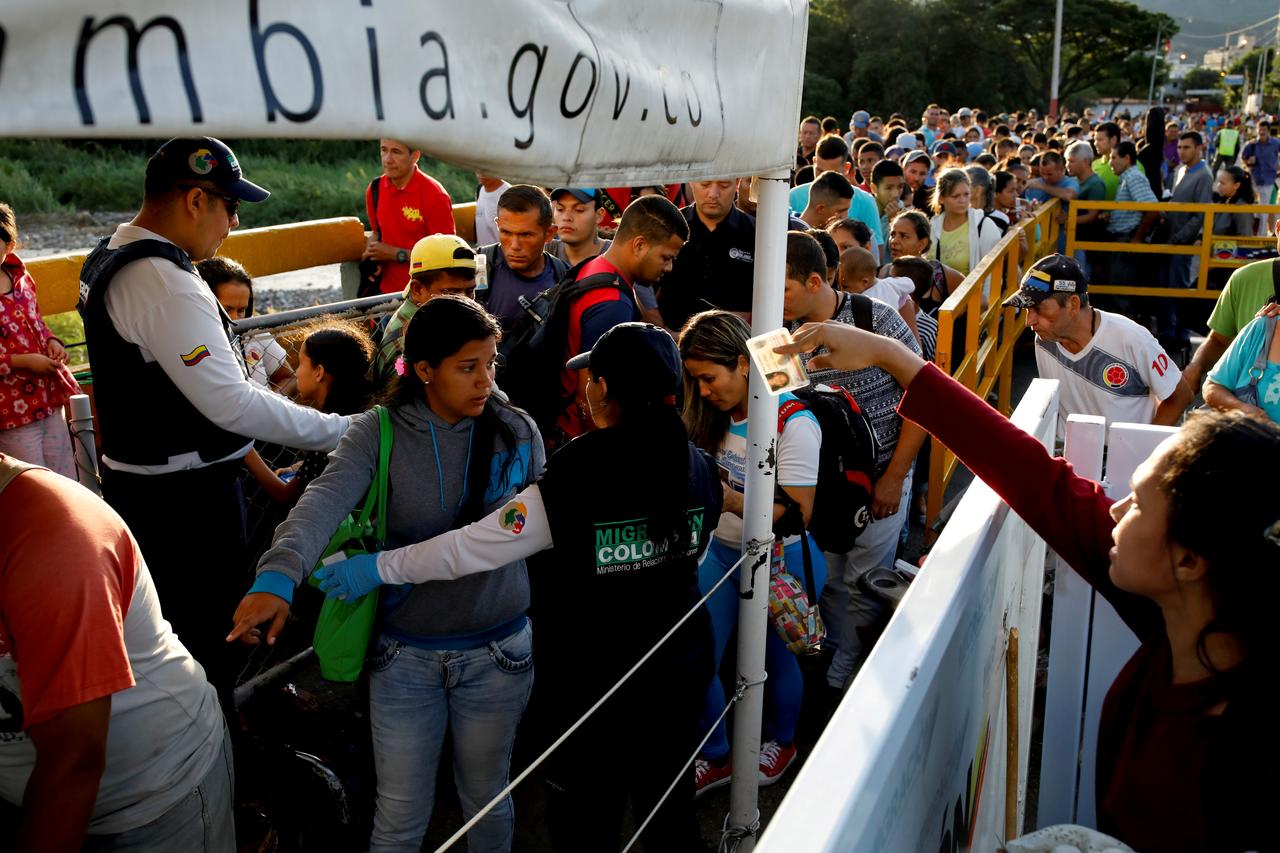GENEVA, (Reuters) – Four million Venezuelan refugees and migrants have fled economic and humanitarian crisis in their homeland, all but 700,000 of them since the end of 2015, U.N. aid agencies said today.
The OPEC member’s imploding economy has brought widespread shortages of basic foods and medicines, while political hostilities have led to waves of fatal violence.
The crisis has deepened since the United States imposed sanctions, including on the pivotal oil industry, in an effort to oust leftist President Nicolas Maduro in favour of opposition leader Juan Guaido.
“The pace of the outflow from Venezuela has been staggering,” the U.N. refugee agency UNHCR and the International Organization for Migration (IOM) said in a joint statement.
The previous U.N. count was 3.7 million and the “alarming” new figure highlights the urgent need to support host countries, mainly in Latin America – led by Colombia with 1.3 million and followed by Peru, Chile, Ecuador, Brazil and Argentina, it said.
Peru’s president on Thursday vowed to continue deporting Venezuelans with criminal records as long as necessary, part of a toughening stance toward the migrants.
Some 3.2 million children in Venezuela – or one in three – need humanitarian assistance, the U.N. Children’s Fund (UNICEF) said in a separate statement on Friday.
Mortality rates among under five-year-olds doubled from 14 per 1,000 live births in 2010/2011 to 31 per 1,000 live births in 2017, UNICEF spokesman Christophe Boulierac told a briefing.
Some 190 suspected cases of diphtheria and 558 suspected cases of measles have been recorded in Venezuela this year, he said, noting that measles weakens a child’s immune system.
UNICEF has provided 55 tonnes of health supplies to 25 hospitals in Caracas and other states this year, including midwifery kits, antibiotics and malaria treatments, he added.
“Unfortunately we are barely scratching the surface – millions of children need to be immunized, go to school, drink safe water and feel protected,” Boulierac said.
Dozens of nations around the world now recognise opposition leader Guaido as interim president, saying Maduro rigged a 2018 election and is behaving like a dictator.
But Guaido has been unable to remove Maduro, who still has the backing of the top military brass and accuses his foes of conniving with Washington to bring about a coup.
U.S. President Donald Trump’s strong backing for Guaido has not tipped the balance, and the sanctions have failed to dislodge Maduro while exacerbating the humanitarian crisis.
One study in April, co-authored by U.S. economists Jeffrey Sachs and Mark Weisbrot, blamed sanctions for causing more deaths and disproportionately hitting the most vulnerable.
“We find that the sanctions have inflicted, and increasingly inflict, very serious harm to human life and health, including an estimated more than 40,000 deaths from 2017–2018,” they said, arguing they were illegal under international law.






